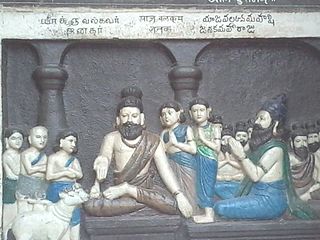A Quote by Simone Weil
When literature becomes deliberately indifferent to the opposition of good and evil it betrays its function and forfeits all claim to excellence.
Related Quotes
In my humble opinion, non-cooperation with evil is as much a duty as is cooperation with good. But in the past, non-cooperation has been deliberately expressed in violence to the evildoer. I am endeavoring to show my countrymen that violent non-cooperation only multiplies evil and that evil can only be sustained by violence. Withdrawal of support of evil requires complete abstention from violence. Non-violence implies voluntary submission to the penalty for non-cooperation with evil.
There are four characteristics which brand a country unmistakably as a dictatorship: one-party rule, executions without trial or with a mock trial for political offenses, the nationalization or expropriation of private property, and censorship. A country guilty of these outrages forfeits any moral prerogatives, any claim to national rights or sovereignty, and becomes an outlaw.
One may say that evil does not exist for subjective man at all, that there exist only different conceptions of good. Nobody ever does anything deliberately in the interests of evil, for the sake of evil. Everybody acts in the interests of good, as he understands it. But everybody understands it in a different way. Consequently men drown, slay, and kill one another in the interests of good.
In this world, there is no absolute good, no absolute evil," the man said. "Good and evil are not fixed, stable entities, but are continually trading places. A good may be transformed into an evil in the next second. And vice versa. Such was the way of the world that Dostoevsky depicted in The Brothers Karamazov. The most important thing is to maintain the balance between the constantly moving good and evil. If you lean too much in either direction, it becomes difficult to maintain actual morals. Indeed, balance itself is the good.
If we state the function of man to be a certain kind of life, and this to be an activity or actions of the soul implying a rational principle, and the function of a good man to be the good and noble performance of these, and if any action is well performed when it is performed in accordance with the appropriate excellence human good turns out to be activity of the soul in accordance with virtue, and if there are more than one virtue, in accordance with the best and most complete.
When one has once accepted and absorbed Evil, it no longer demands the unfitness of the means. The ulterior motives with which youabsorb and assimilate Evil are not your own but those of Evil.... Evil is whatever distracts. Evil knows of the Good, but Good does not know of Evil. Knowledge of oneself is something only Evil has. One means that Evil has is the dialogue.... One cannot pay Evil in installments--and one always keeps on trying to.







































